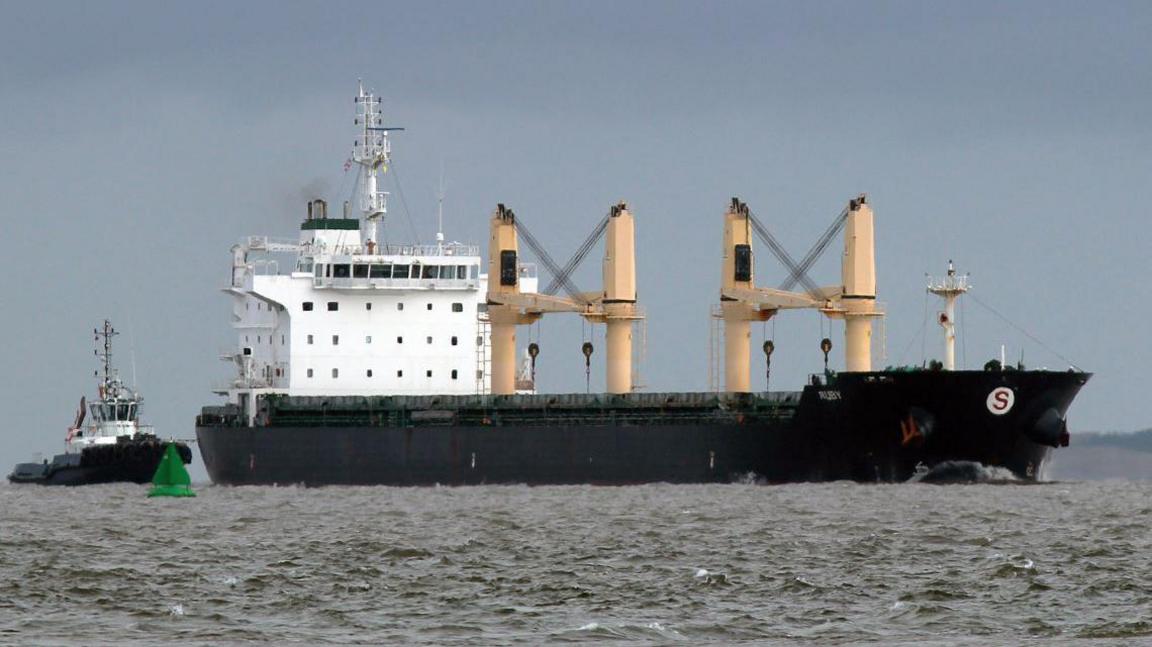How an explosion-risk ship ended up in Norfolk
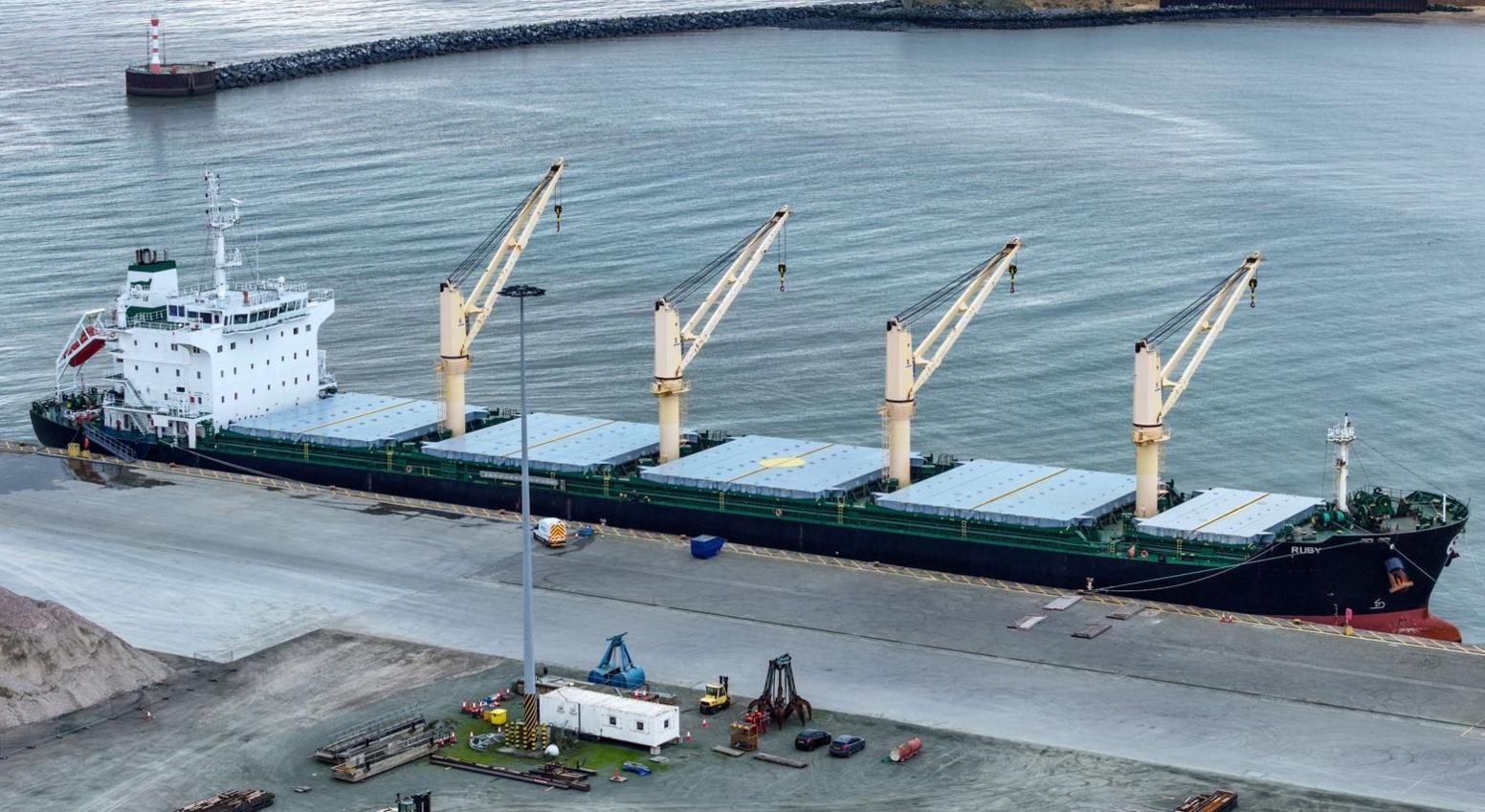
The MV Ruby is currently docked in the port of Great Yarmouth
- Published
A damaged ship turned away by several countries because of fears about its cargo is now berthed on the East coast at Great Yarmouth. The MV Ruby has had to dump 300 hundred tonnes of its load into the North Sea, prompting an outcry.
What is the MV Ruby doing?
The ship left the port of Kandalaksha in northern Russia in July, carrying 20,000 tonnes of ammonium nitrate fertiliser, destined for Africa.
But the ship damaged its hull and propeller after it ran aground in bad weather.
Authorities in Lithuania and Sweden refused to allow it to enter their waters, according to reports.
The MV Ruby was then moored in the English Channel before poor weather led it to anchor off the coast of Margate in Kent, before heading up the East coast to Great Yarmouth in October.
It is unclear why it was initially allowed to dock at the Norfolk port.
After it dumped 300 tonnes of potentially contaminated cargo on Saturday it returned to Great Yarmouth to offload the rest of the fertiliser ahead of repairs.
The Department for Transport (DfT) said: "The decision to allow the MV Ruby back into Great Yarmouth port was a commercial one, agreed between the ship operator and the port."
Why was part of its cargo dumped at sea?
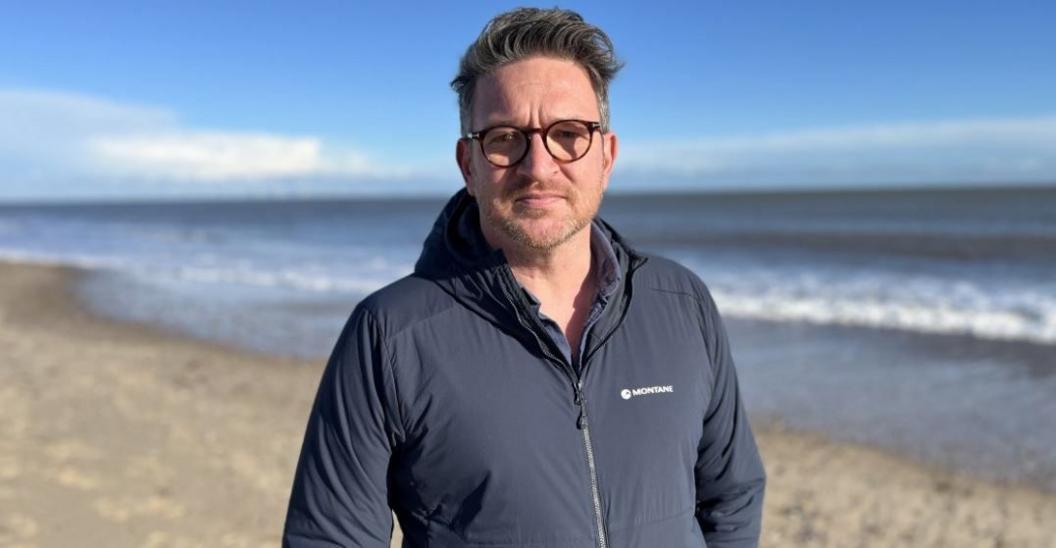
Prof Ben Garrod said dumping 300 tonnes of ammonium nitrate into the North Sea would have a "massive impact" on the local environment
In response to the BBC's questions, the Maritime and Coastguard Agency (MCA) said bags containing the ammonium nitrate stored in the front hold had come into contact with fuel oil and seawater after the grounding incident.
Because the cargo was potentially contaminated, it was disposed of "at a site agreed with the relevant authorities in UK territorial waters that offered the lowest possible environmental impacts".
But the decision prompted criticism from local environmentalists and businesses owners.
Ben Garrod, Professor of Evolutionary Biology at the University of East Anglia, questioned the MCA's assurances that the ammonium nitrate would dissipate.
"Yes, everything dissipates eventually but that's not without massive detriment to our local environment," he said.
He said the decision would have a "devastating impact on local maritime species".
Is its load dangerous?
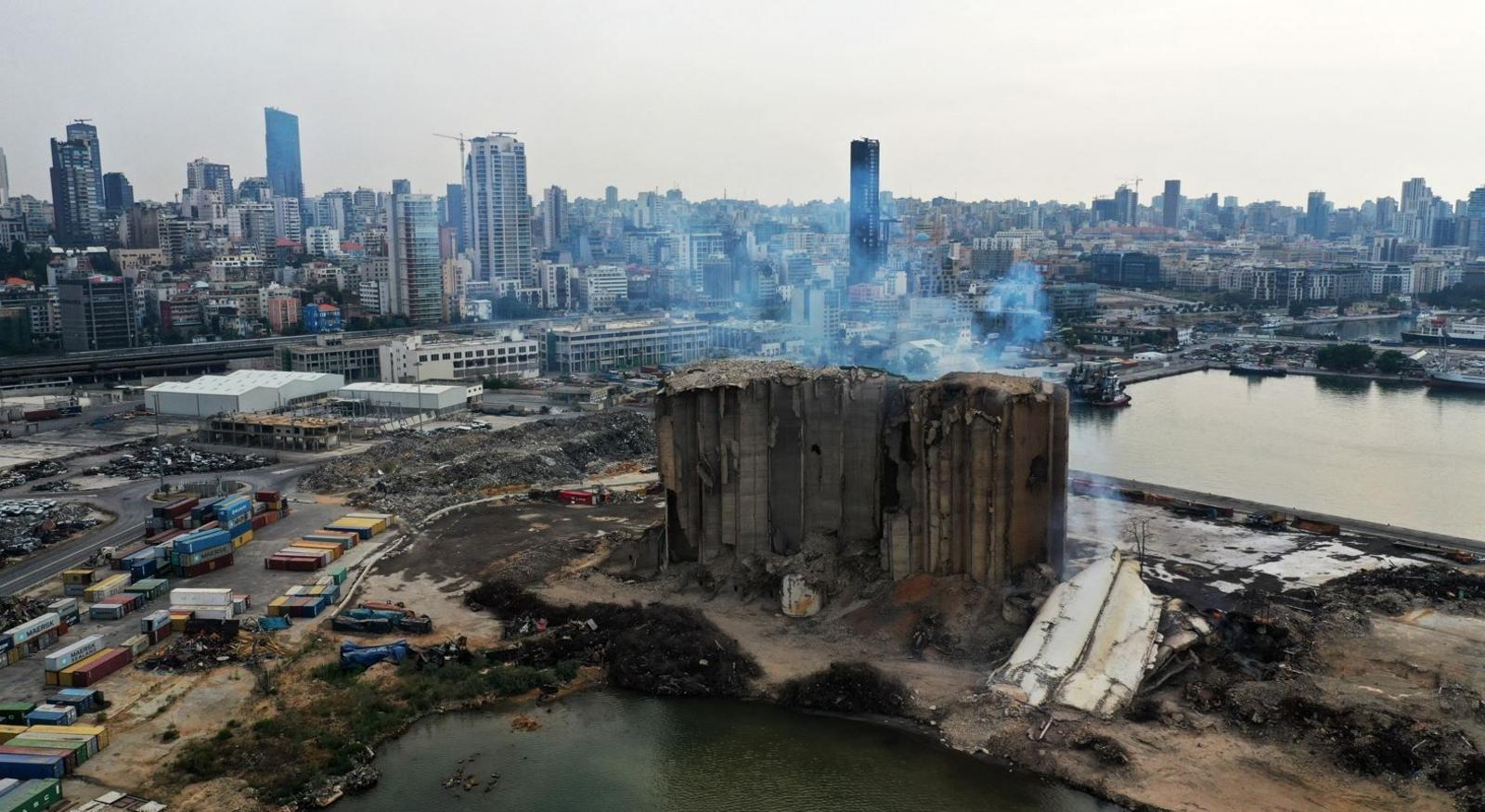
In Beirut in 2020, a stockpile of haphazardly stored ammonium nitrate fertiliser caught fire resulting in an explosion that killed more than 200 people
At the time the vessel was moored off Kent, its operator, Dubai-based Serenity Ship Management, said the load posed "no risk to the surrounding area in its present state".
The MCA added: "Ammonium nitrate is managed safely at ports across the world.
"It is regularly imported into the UK and the normal safety processes will be in place."
But according to the Health and Safety Executive (HSE), "contamination of ammonium nitrate is generally expected to increase the likelihood of an explosion if that ammonium nitrate is subject to a severe fire and/or an intense shock".
The addition of diesel fuel produces a mix called ANFO (ammonium nitrate fuel oil), one of the most widely used explosives, external.
A paper published by Oxford University described ANFO as "quite resistant to explosion and needs a substantial booster explosive so accidental explosions are rare," according to the university's chemistry department.
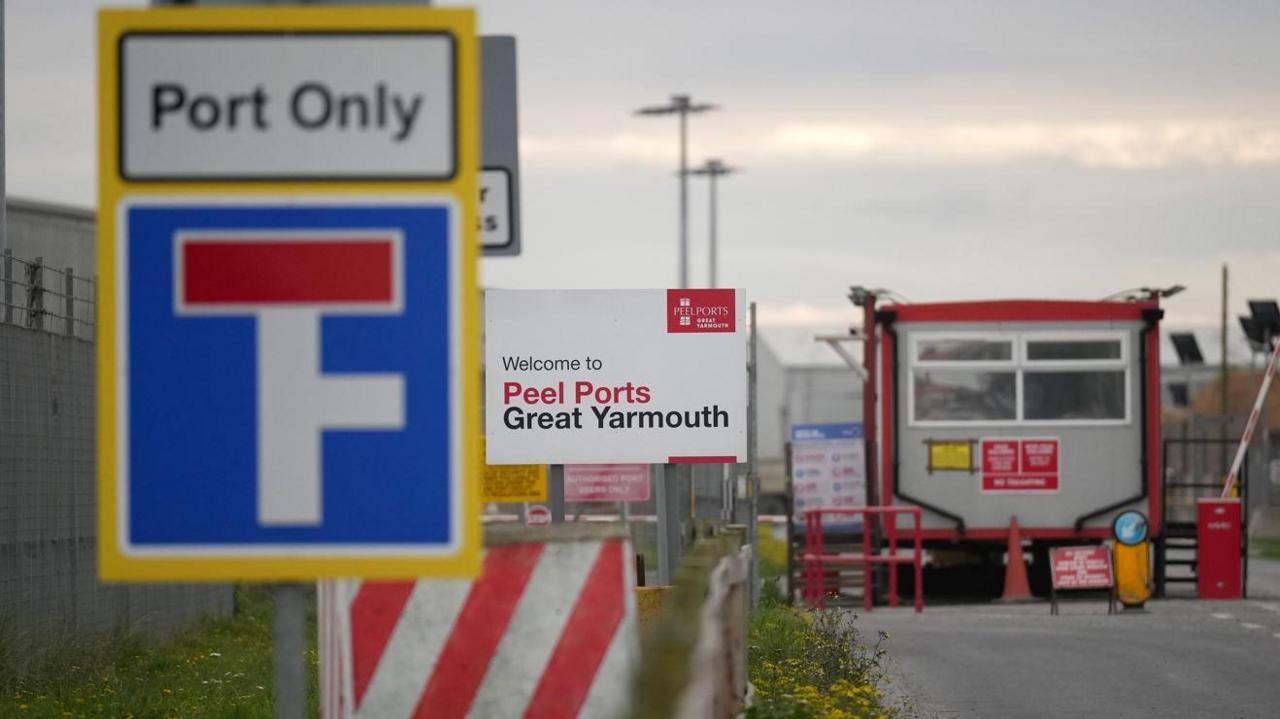
The MV Ruby arrived at Great Yarmouth in October
What is the MV Ruby's story?

The former captain of the MV Ruby, Abdul Samin, praised the response by the UK authorities
The MV Ruby is registered in Malta, where local business records identify its owner as a company called Ruby Enterprise.
Latest accounts indicate the vessel is worth around 11m Euros.
Abdul Samin, who captained the ship in 2017, said it was built in South Korea.
A highly experienced marine surveyor, he added: "Sadly, a lack of understanding at some of the ports where the ship sought refuge, coupled with intense media scrutiny, led to confusion and delays in decision-making.
"I would like to clarify that ammonium nitrate, in its shipped form, is not inherently explosive.
"It only becomes dangerous if it’s contaminated with substances like oil or deliberately altered for explosive use."
Mr Samin told the BBC he was impressed by how the UK authorities "handled the situation".
"Their decisions were thoughtful, informed, and demonstrated a high level of expertise. It reassured me that the maritime industry is in good hands," he added.
The BBC has been unable to contact Ruby Enterprise.
The ship's management company has been approached for comment.
Get in touch
Do you have a story suggestion for Norfolk?
Follow Norfolk news on BBC Sounds, Facebook, external, Instagram, external and X, external.
- Published21 November 2024
- Published18 November 2024
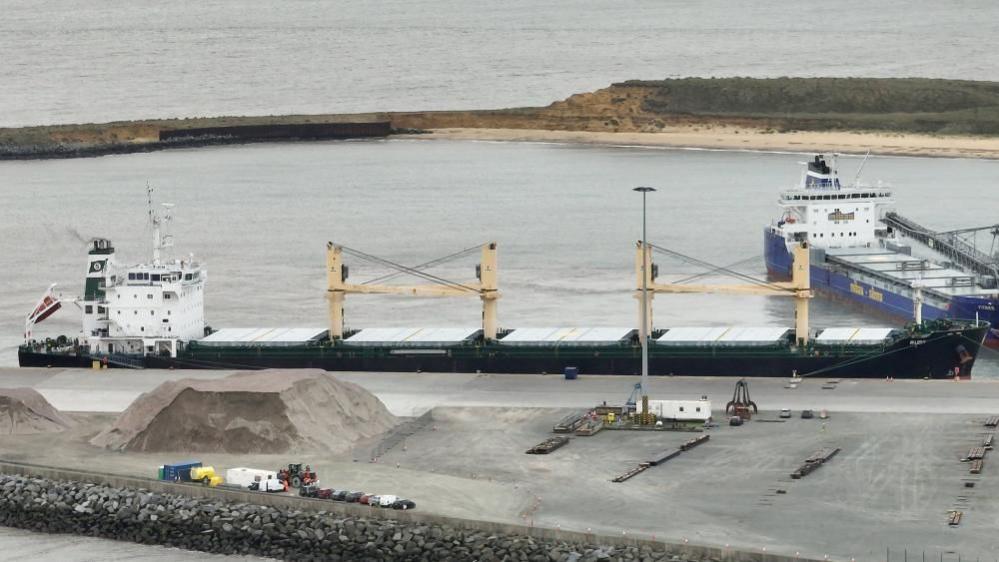
- Published26 September 2024
